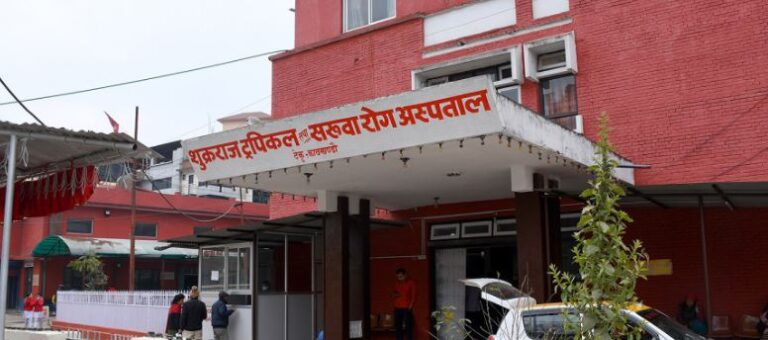
As many as 7,900 dengue patients received treatment at the Sukraraj Tropical and Infectious Disease Hospital (STIDH) at Teku during the outbreak of dengue in 2022.
On the occasion of the 89th annual celebration programme of the hospital on Tuesday, Dr. Manisha Rawal, director of the hospital, said that 7,900 dengue patients received services from the hospital’s OPD. Out of them, 610 dengue patients were admitted to the hospital.
According to Dr. Rawal, the hospital had treated 2,318 COVID-19 patients since the first case of the coronavirus pandemic was traced in Nepal.
Out of them, 900 needed ICU and 475 critically ill patients needed ventilators. She said that the hospital vaccinated 100,012 people against COVID-19 in 14 months.
Similarly, the hospital has provided free services to 1,475 people from the social service unit. She informed that the hospital treated 27 patients of cholera that spread in the Kathmandu Valley in June 2022.
According to Dr. Rawal, 2,185 HIV patients have received services from the ART Centre in the hospital.
The hospital has been serving leprosy patients by establishing a leprosy referral clinic through telemedicine since last year.
The hospital is providing pediatric health, skin and venereal disease, telemedicine services from specialist OPD, informed Dr. Rawal.
She said that around 300 to 400 patients are being vaccinated against rabies from the Animal Bite Clinic of the hospital.
Dr. Rawal requested Minister for Health and Population Padam Giri to arrange risk allowance for health workers and employees who work at risk for 365 days in the hospital.
According to Dr. Rawal, the 300-bed hospital is being expanded within a month as per the government’s policy and programme.
She has requested the ministry to assist for the expanding process and added that there would be problem in providing services when the construction of the new building proceeds.
Minister Giri committed that the ministry would support the construction of the hospital building by temporarily extending the service.
Source : TRN,





